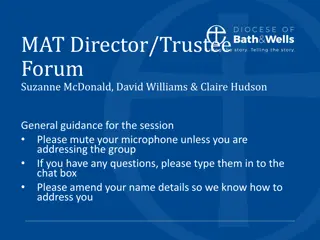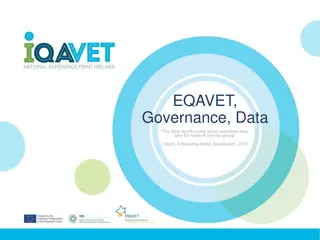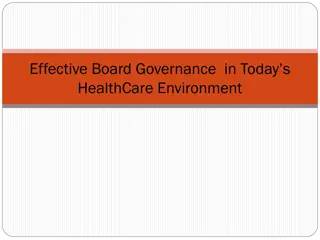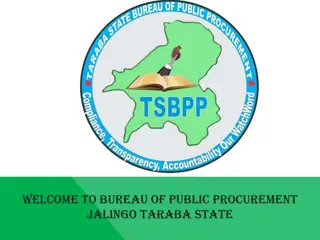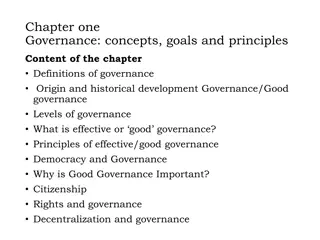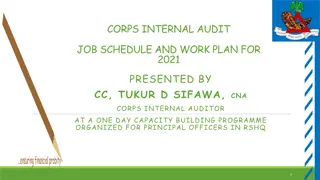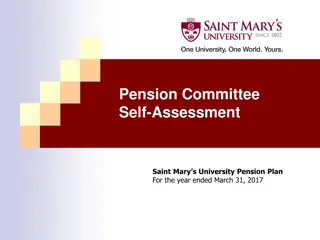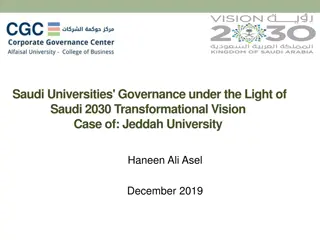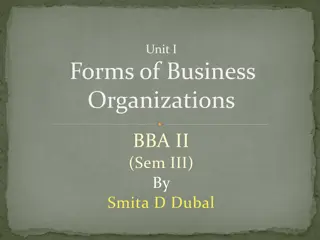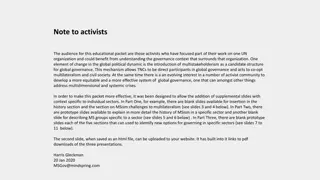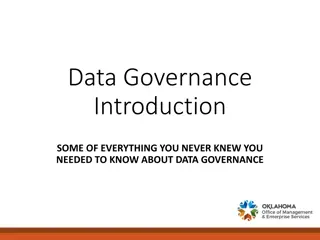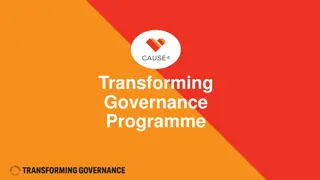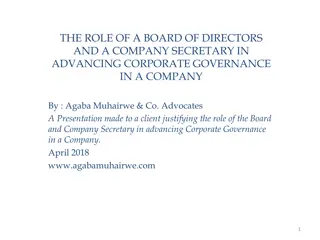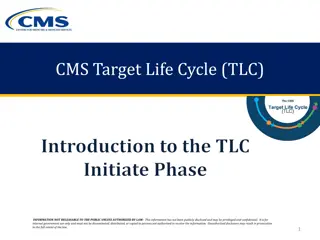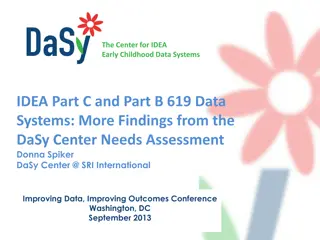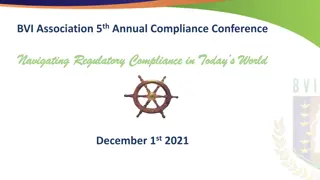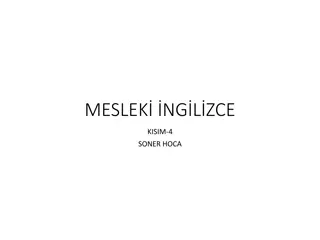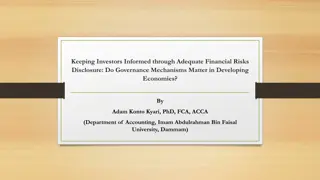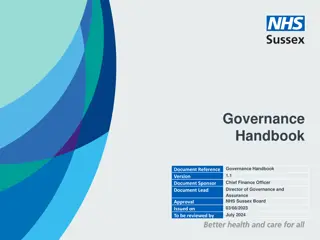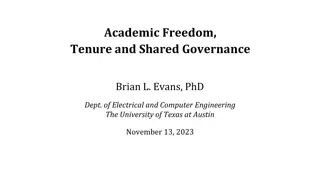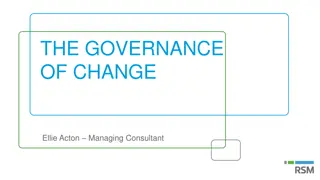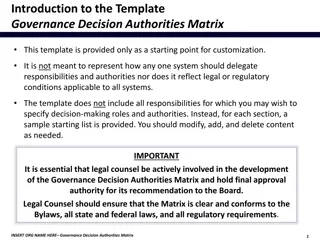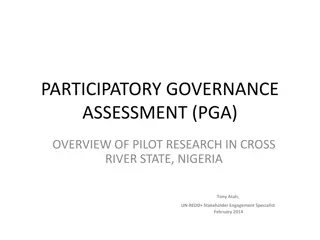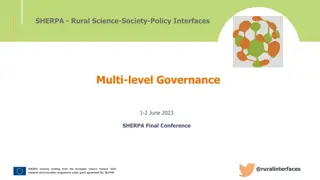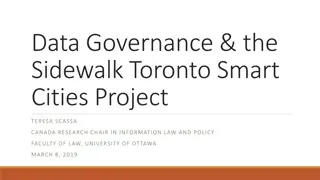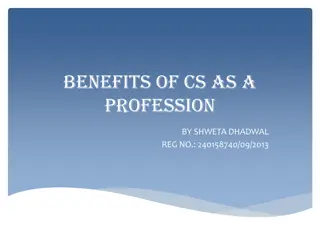Importance of Governance and Business Probity in Organizations
Understanding the critical role of governance probity policies and practices in fostering good governance, exploring committee members' roles in probity policies, ensuring honesty and integrity through codes of conduct, benefits, and managing conflicts of interest, discussing the significance of up-to-date policies, and regulatory standards for maintaining honesty and integrity in business operations.
Download Presentation

Please find below an Image/Link to download the presentation.
The content on the website is provided AS IS for your information and personal use only. It may not be sold, licensed, or shared on other websites without obtaining consent from the author. Download presentation by click this link. If you encounter any issues during the download, it is possible that the publisher has removed the file from their server.
E N D
Presentation Transcript
Angela Spence SHARE 12th May 2022
Learning Outcomes Understand why governance probity policies and practices are critical to good governance Understand more about a Committee members roles and responsibilities in four of the probity policies
Ensuring governance and business probity Importance Examples Code of Conduct (Governing Body and staff) Benefits, Payments and Entitlements Declaration of Interest Whistleblowing Need to know what to do when there are potential or actual breaches
Discussion Why do you think it is important to have good, up to date policies around honesty and integrity in a business? What could go wrong if these were not here?
What the Regulator says Regulatory Standard 5 The RSL conducts its affairs with honesty and integrity. Guidance 5.1 The RSL conducts its affairs with honesty and integrity and, through the actions of the governing body and staff, upholds the good reputation of the RSL and the sector. 5.2 The RSL upholds and promotes the standards of behaviour and conduct it expects of governing body members and staff through an appropriate code of conduct. It manages governing body members performance, ensures compliance and has a robust system to deal with any breach of the code.
Code of Conduct Model Code of conduct and guidance from SFHA updated April 2021 Key headings based on Nolan Principles Selflessness Openness Honesty Objectivity Integrity Accountability Leadership
What do the principles mean? Selflessness You must act in the best interests of CHA at all times and must take decisions that support and promote our strategic plan, aims and objectives. Members of the Governing Body should not promote the interests of a particular group or body of opinion to the exclusion of others Openness You must be transparent in all of your actions; you must declare and record all relevant personal and business interests and must be able to explain your actions. Honesty You must ensure that you always act in the best interests of the organisation and that all activities are transparent and accountable
What do the principles mean? Objectivity You must consider all matters on their merits; you must base your decisions on the information and advice available and reach your decision independently Integrity You must actively support and promote our values; you must not be influenced by personal interest in exercising your role and responsibilities Accountability You must take responsibility for and be able to explain your actions, and demonstrate that your contribution to our governance is effective Leadership You must uphold our principles and commitment to delivering good outcomes for tenants and other service users, and lead the organisation by example
Entitlements, Payments and Benefits Policy Model SFHA policy updated April 2021 No gain/advantage-financial or otherwise Sets out declaration of interest Sets out process for using contractors/suppliers Gives detail of what is and is not acceptable in terms of B,P & E
Examples-are these acceptable? Small gifts under X in value Payment to Committee members? Loan to one of your people? Hospitality invites up to X and register ? One off payments to staff? NEED to register all offers of gifts and hospitality - whether accepted or declined and value or estimated value Publish Committee gifts register
Declarations of Interest Set out in Benefits, Payments and Entitlements Policy Regulatory Framework 1.6 Each governing body member always acts in the best interests of the RSL and its tenants and service users, and does not place any personal or other interest ahead of their primary duty to the RSL. 5.4 Governing body members and staff declare and manage openly and appropriately any conflicts of interest and ensure they do not benefit improperly from their position. Not all declared interest lead to conflict of interest
Declaration of Interest Set out in Code of Conduct You have personal, business or financial interest in any matter that is relevant to CHA activities or is being considered (or is likely to be considered) You know that someone to whom you are closely connected has such an interest You must declare it promptly and record it in CHA s Register of Interests You must keep entries in the Register of Interests complete, accurate and up to date
CLOSE CONNECTION-WHAT THE REGULATOR REQUIRES Group Required Response 1. Members of your household We expect you to be aware of and declare any relevant actions of all people in your household. You must take steps to identify, declare and manage these. This includes: Anyone who normally lives as part of your household (whether related to you or otherwise) Those who are part of your household but work or study away from home 2. Partner, Relatives and friends Where you have a close connection and are in regular contact with anyone within this group, we expect you to be aware of and declare any relevant actions. Under these circumstances, you must take steps to identify, declare and manage these actions. This includes: Your partner (if not part of household) Your relatives and their partners Your partner s close relatives (i.e. parent, child, brother or sister) Your close friends Anyone you are dependent upon or who is dependent upon you Acquaintances (such as neighbours, someone you know socially or business contacts/associates) Where you do not have a close connection and regular contact with someone in this group, we do not expect you to be aware of or to go to unreasonable lengths to identify any relevant actions. However, if you happen to become aware of relevant actions by such individuals, then these should be declared and managed as soon as possible.
Some examples of Interests to be declared Tenancy of a property (by you or someone to whom you are closely connected) of which we are the landlord Occupancy or ownership of a property (by you or someone to whom you are closely connected) which is factored or receives property related services from us Receipt of care or support services from us Ownership of land or property in our areas of operation excluding for the purpose of your own residential use Membership of a political, campaigning or other body whose interests and/or activities may affect our work or activities Being a significant shareholder in company our RSL does business with Membership of a community or other voluntary organisation that is active in the area(s) we serve; Voluntary work with another RSL or with an organisation that does, or is likely to do, business with us If you purchase goods or services from one of our approved contractors or Framework Agreement partners Membership of the governing body of another RSL or being an elected member of any local authority where we are active
How to Declare Declaration of Interest form-append to BPE Policy Committee and staff If in doubt-declare Annual refresh- sign code of conduct and review Declarations Ongoing-every Committee meeting and when changes occur- for example, new contractors May have to declare interest at a meeting and not participate in discussion- if a conflict of interest-must leave for that agenda item
Situations where potential breaches of the Code of Conduct/Conflict of interest could arise You are offered an invitation for a meal for 2 paid by CHA s repairs contractor You get a new shower cubicle privately installed by CHA s aids and adaptations contractor and pay the contractor directly Your sibling works for a firm tendering for work at CHA You go on an overnight stay representing CHA at an event and post pictures on Instagram of you and others after the meal having a drink Your behaviour comes across as curt and rude to others at CHA meetings
Examples of Serious Breaches Comes from Notifiable Events Guidance Failure to act in CHA s best interests and/or acting in a way that undermines or conflicts with the purposes for which we operate. Support for, or participation in, any initiative, activity or campaign which directly or indirectly undermines or prejudices CHA s interests or those of our service users, or our contractual obligations. Accepting a bribe or inducement from a third party designed to influence the decisions CHA makes. Consistent or serious failure to observe the terms of the Code of Conduct.
Reporting Potential Breaches Set out in code of conduct GB members- via Chair If Chair-to another office bearer Usually undertake independent investigation Serious breach New model rules facilitate required leave of absence Staff- direct line manager or define whom Internal investigation-may be independent Material breach of the Code will be considered under disciplinary procedures
Regulatory Requirements Constitutional requirements in Regulatory Framework There are provisions for the RSL to remove a governing body member who does not sign up to the code of conduct and to take action against or remove a governing body member in breach of the code. Captured in Model Rules 37.8 The Committee can require that a Committee Member who is being investigated for a potential breach of the Association s Code of Conduct for Committee Members take leave of absence and not attend any meeting in his or her capacity as Committee Member until the Committee has completed its consideration of the potential breach. When on such leave of absence, the Committee Member will not be entitled to receive minutes and/or documents in his or her capacity as a Committee Member relating to the business of the Association.
Definition of Whistleblowing Whistleblowing is where a member of staff raises concern about improper conduct, wrongdoing, risk or malpractice with someone in authority either internally or externally (Whistleblowing about a regulated body-SHR factsheet 2015) Does go broader than staff but they have legal protection
Regulatory Framework RF states that RSL s must Have effective arrangements and a policy for whistleblowing by staff and governing body which it makes easily available and which it promotes . Notifiable Events Guidance 2019 in Governance and organisational issues states that Whistleblowing allegations must be reported as a notifiable event SHR supports A positive approach to whistleblowing, that makes clear to staff that the RSL will take seriously any concerns raised by them and they will be supported to do the right thing (Summary of the risks we will focus on-SHR Nov 2018)
Whistleblowing and Grievance Whistleblowing is about conduct that affects others, for example, fraud or a failure to comply with health and safety requirements. A grievance is where a member of staff has a personal complaint about their own employment situation.
Some Examples of whistleblowing Fraud or investigation Financial matters Failure to comply with policies / current legislation Failure to comply with the Code of Conduct Committee and staff Breach of contract Breach of confidentiality Poor Service Standard of Work Environmental issues e.g. pollution Dignity at work issues e.g. bullying, harassment, discrimination Cover-up Improper behaviour towards tenants or acting on behalf of tenants in personal matters, particularly financial matters
Public Interest Disclosure Act 1998 3 Main Requirements in PIDA A Qualifying Disclosure A Protected Disclosure Protection for the Worker Disclosures made are expected to be done: In good faith (focus on public interest) With reasonable belief the relevant failure by the person is substantially true On the understanding that the whistle blower should not suffer detriment
Qualifying Disclosures The following are the qualifying disclosures protected by the 1998 Act: A criminal offence Failure to comply with legal obligations A miscarriage of justice Threats to an individual s health and safety individual Any danger to the environment A deliberate attempt to cover up information that would provide evidence that any of these five practices occurred
Making a Disclosure A disclosure must be made to: The employer (line manager usually) or governing body member (Internal) Where relevant, the person responsible for the wrong doing ( Would be unusual) (Internal) A Solicitor to obtain legal advice Minister of the Crown (Employer appointed under enactment) (External) Prescribed Person e.g. Regulatory bodies like SHR , local authorities, etc (External)
Legal Protection No detriment Not less favourably Tribunal/Loss Malicious or knowingly untrue claims Legal advice
Who could be a Whistle Blower An employee A Committee member A Tenant or other customer External auditors or accountant (via section 72 of the Housing (Scotland) Act 2010 A Contractor or agency A Partner Anonymous person
Reporting RSL must have a policy which sets out how to report a concern via whistleblowing Should have evidence of regular training for Committee and staff Report usually via line or section manager (ideally in writing setting out the concern) Investigation usually by member of SMT or Director unless involved-could be independent If about SMT member, Director or MC member(s), can bypass and go straight to the Chair Can go direct to the SHR would be SHR if about the Chair
Learning Outcomes Understand why governance probity policies and practices are critical to good governance Understand more about a Committee members roles and responsibilities in four of the probity policies
Thank you Angela Spence T: 0141 370 6877 E: angela.spence@idealoutcomes.co.uk www.share.org.uk sharehousingtraining share-ltd Training_SHARE









